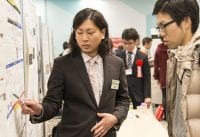The 7th Hyper Interdisciplinary Conference
- Conference Theme
- What is a person and to research surrounding people
- Day & Time
- Friday, March 2 and Saturday, March 3, 2018
- Place
- TEPIA Advanced Technology PavilionAccess
Digest of Past Sessions/Related Articles
Abstract submission period: September 12 (Tue.) - February 5 (Mon.)
The period for accepting new and revised abstracts has ended.
The 7th Conference of the Association of Hyperdifferent Fields will be held under the theme of "What is a human being? Researchers from Japan and overseas, people from venture companies, factories, and large corporations will gather to discuss new knowledge and technologies that can be created by integrating and understanding diverse data related to people. We will challenge ourselves to create new research teams out of this gathering.
■Number of participants: 400/day
Application period for auditing participation: December 1 (Fri.) - February 28 (Wed.)
If you wish to participate, please register below. We look forward to seeing you there.
Ticket sales for the 7th Annual Hyperdifferentiation Conference for this conference have been closed. If you are strongly interested in attending, please contact us at [email protected].
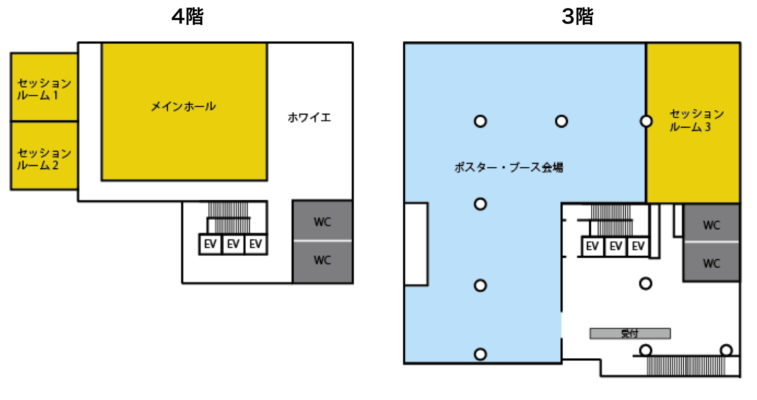
Friday, March 2, 2018 9:00 - 20:00
4th Floor Main Hall
- 9:30-9:50Opening Ceremony
- 10:00-11:50TECH PLANTER World communication
- 12:00-12:50Lunch Social (in the foyer outside the Main Hall)
- 13:00-14:20Panel Discussion by International Accelerators
- 14:40-16:001st Cellular Agriculture Conference - Pure cultured meat from regenerative medicine to space agriculture
- 16:20-17:40Real Tech Venture of the Year 2018 Awards Ceremony
- 17:50-18:30Visionary Partner Award Ceremony
4F Session Room 1
- 10:00-11:20session
Using Business Administration and Technology to Create an Organization that Lasts 100 Years
- 13:00-14:20session
Agriculture and Food Changing with the Introduction of Smart Agriculture - 14:40-16:00session
Sensing Unraveling Deep Human Information
4F Session Room 2
- 10:00-11:20session
The Science of Weirdos: People with High and Low Weirdness Values. Can one remain a weirdo? - 13:00-14:20session
Strategy for Town Factories in the Era of Great Business Downturn
3rd Floor Session Room 3
- 10:00-11:20session
Beyond the Sigmoid Curve - Creating the world's best stories in the region through science and technology - 18:40-20:00get-together
3F Poster and Booth Area
- 10:00-18:20 Researchers' posters, venture booths Postings and exhibits
- 14:40-16:20 Poster Booth Core Time
9:30-9:50
- 4th Floor Main Hall
Opening Ceremony
10:00-11:50
- 4th Floor Main Hall
TECH PLANTER World Communication
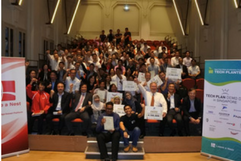
The startup world is beginning to realize that it is not fancy showcase events that make the world a better place, but a series of steady communication. Based on this belief, in 2017 "TECH PLANTER" continued to steadily discover and nurture real tech startups in 8 countries and 9 locations overseas.
As a culmination of these activities, this session will feature presentations by six teams carefully selected from more than 200 applicants. The presentation will be based on each team's vision, challenges, core technologies to solve them, and collaboration with Japanese companies to realize their visions, and will provide an opportunity for the audience to share in the inspiration for new businesses.
13:00-14:20
- 4th Floor Main Hall
Panel Discussion by International Accelerators
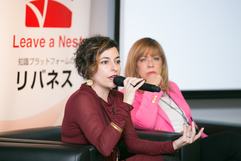
How Should We Deal with Chaos in New Businesses? Can chaos be tamed? Accelerators from around the world will discuss what kind of space is needed.
14:40-16:00
- 4th Floor Main Hall
1st Cellular Agriculture Conference - Pure cultured meat from regenerative medicine to space agriculture
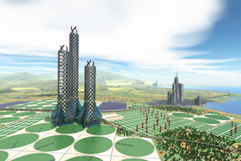
Cellular agriculture is the production of agricultural, livestock, and marine products through cell culture. A typical example is "clean meat" (cultured meat), which is produced by culturing muscle cells using regenerative medicine technology, and is expected to be a decisive factor in solving the world's food problems.
Conferences on cellular agriculture have been held in the Netherlands, Israel, and the U.S., but this will be the first meeting to be held in the East Asian region.
This session welcomes Erin Kim of "New Harvest," a non-profit organization known for having pioneered the concept of cellular agriculture, from the United States, and Professor Tatsuya Shimizu, Director of TWIns at Tokyo Women's Medical University and a leader in regenerative medicine from Japan, Professor Tatsuya Shimizu, Director of TWIns at Tokyo Women's Medical University, a leader in regenerative medicine, and Professor Yayoi Obata, who has received numerous awards for her life science applications in agriculture at Tokyo University of Agriculture.
16:20-17:40
- 4th Floor Main Hall
Real Tech Venture of the Year 2018
The awarding of prizes to venture companies selected by RIVANES for their unique, novel, and high-growth businesses in the real-tech field will be followed by presentations by representatives of the award-winning companies.
<Selection Criteria
To have a Question and Passion that can change the world.
Businesses in the real-tech field that have uniqueness, novelty, and growth potential
Promotion system with execution capability
*Real tech refers to research-based innovative technologies that contribute to solving the problems of the earth and mankind.
*Awarded in the Startup category if the company has been in business for 3 years or less, and in the Growth category if the company has been in business for 3 years or more.
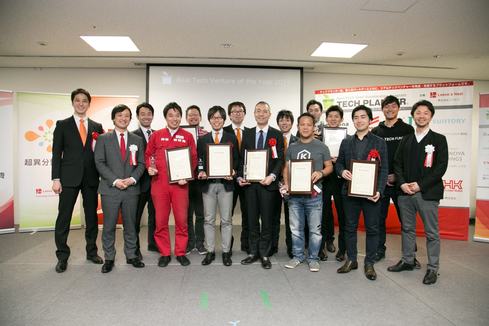
17:50-18:30
- 4th Floor Main Hall
Visionary Partner Award Ceremony
We have positioned future-oriented companies that understand the significance of TECH PLANTER, which seeks out researchers with a passion to change the world through science and technology and nurtures them together from the pre-seed stage toward commercialization, and that are not afraid to change themselves and continue to take on new challenges, as "Visionary Partners". Starting this year, we will hold the TECH PLANTER Visionary Partner 2017 Award Ceremony.
10:00-11:20
- 4F Session Room 1
session
Using Business Administration and Technology to Create an Organization that Lasts 100 Years
I believe that social scientific methods and communication technologies that visualize invisible knowledge can contribute to the creation of organizations that will grow in the future society.
which was founded by a researcher and has built an organizational structure while incorporating technology and science from a unique perspective, will join Associate Professor Iriyama of Waseda University, who has brought many cutting-edge management theories from overseas to Japan and advocates the "search for and deepening of knowledge," to discuss how organizations can be created by utilizing new technologies and social scientific knowledge. The discussion will focus on how to create an organization that utilizes new technologies and social scientific knowledge.
13:00-14:20
- 4F Session Room 1
session
Agriculture and Food Changing with the Introduction of Smart Agriculture
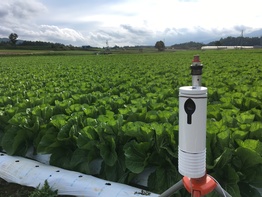
The aging of farmers, the lack of successors, and the inability to pass on farming techniques are some of the problems facing the agricultural sector, and attempts are being made to solve these problems by introducing advanced technologies such as IT and drones. In this session, we will invite producers as users, companies as system providers, and researchers who develop core technologies to discuss what is necessary for the diffusion of these technologies and how the field will change as a result of their diffusion, and explore predictions for the future of agriculture and the direction of technology diffusion.
14:40-16:00
- 4F Session Room 1
session
Sensing Unraveling Deep Human Information
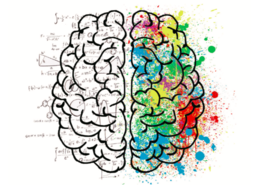
Presenters will provide cutting-edge information on non-invasive biological sensing with different technologies, and discuss the new world that will be opened up by utilizing these technologies. We aim to use the discussion as a starting point for collaboration to realize the future vision that emerges from the discussion.
10:00-11:20
- 4F Session Room 2
session
The Science of Weirdos: People with High and Low Weirdness Values. Can one remain a weirdo?
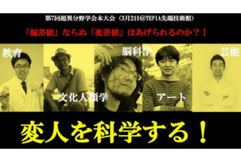
The Liberace Center for Education and Research and the Institute for Weirdo Anthropology will hold a discussion on the theme "How to Keep Being a Weirdo" at the Association of Transdisciplinary Studies, where "weirdos" who create new values in the world gather.
Why is it that the "deviation value" (not "deviation score") is high in childhood, but low in adulthood? Why do adults have less intuition and imagination? How can we remain professional weirdos? We will take a cultural anthropological, pedagogical, and brain-scientific approach to these and other questions, using various oddballs as examples.
13:00-14:20
- 4F Session Room 2
session
Strategy for Town Factories in the Era of Great Business Downturn
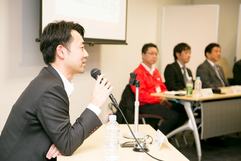
In 2025, more than 60% of Japan's small- and medium-sized business owners will be over 70 years of age, and despite their current account surpluses, they will be forced to close their companies one after another due to the lack of successors. In Japan, which is on the verge of a period of great business closure if nothing is done, there are some small factories that have broken out of the existing industrial structure and are achieving growth. We will invite four managers from Sumida-ku, Ota-ku, Itabashi-ku, and Minato-ku, Osaka, to discuss what strategies they are using to survive and what can be done to make Japanese factories the center of global manufacturing again in the future.
10:00-11:20
- 3rd Floor Session Room 3
Beyond the Sigmoid Curve - Creating the world's best stories in the region through science and technology
Efforts to "create industry and employment in the region" continue to change their names to "regional revitalization," "regional development," and "industrial promotion," depending on the government administration and social conditions of the time. In each of these areas, we are still in the trial-and-error stage, and I believe that there are still issues to be resolved in each region. We believe that the use of science and technology to create the "best in the world" in each region will lead to sustainable, not transient, development. In this session, we will compare the growth of each regional city to a "sigmoid curve," and discuss what kind of future can be created beyond the mature and declining phases, together with key persons from each region who have started new initiatives with research as the core.
10:00-18:20 (core time 14:40-16:00)
- 3F Poster and Booth Area
Researchers' posters, venture booths Postings and exhibits
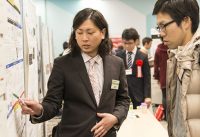
This is a place for poster presentations that are not limited to a specific field, but rather, where a wide variety of presentations are made simultaneously to exchange passions among different fields and to create opportunities for innovation.
Click here for more information.
Saturday, March 3, 2018 9:00 - 20:00
4th Floor Main Hall
- 9:00-9:20opening remark
- 9:20-9:50keynote speech
- 10:00-11:50Liverness Research Funding Award 2018
- 12:00-12:50 Lunch Social (in the foyer outside the Main Hall)
- 13:00-14:20symposium
Pumping new value out of uncharted waters - 14:40-16:00panel discussion
How to Reform Work Styles and Generate Innovation in the Knowledge Society - 16:20-17:40panel discussion
Humanome research, beginning - 17:50-18:20Researcher Award Ceremony
4F Session Room 1
- 10:00-11:20session
Imagining the future of creative human resource development from the front lines of education - 14:40-16:00session
-Plan for the Migration of One Million Humans to Mars- Presentation and Discussion of the Concept - 16:20-17:40session
A society in which robots will become the norm - Where is the breaking point of dissemination and how will humans and society change?
4F Session Room 2
- 11:00-12:20 Robotics opens up the near future of Japanese agriculture (Lunch Session)
- 13:00-14:20 Researcher Pitch
- 14:40-16:00 Very Young Researchers Presentation
- 16:20-17:40 Researcher Pitch
3rd Floor Session Room 3
- 10:00-11:20 What is "Sustainability Sense"? Human resource development by industry, government, and academia for the realization of the SDGs
- 13:00-14:20 Mitsubishi Electric Idea Plus
- 18:30-20:00 get-together
3F Poster and Booth Area
- 10:00-18:20 Researchers' posters, venture booths Postings and exhibits
- 14:40-16:20 Poster Booth Core Time
9:20-9:50
- 4th Floor Main Hall
keynote speech
Artificial Intelligence vs Life Intelligence - Reverse Engineering the Brain
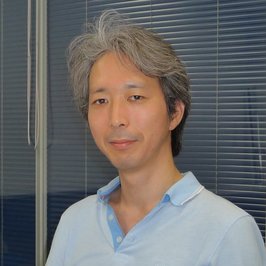
Mr. Hirotomo Takahashi
Lecturer, Research Center for Advanced Science and Technology, The University of Tokyo
D. in 2003 from the Graduate School of Engineering (Department of Industrial and Mechanical Engineering) at the University of Tokyo, and has been a lecturer at the Research Center for Advanced Science and Technology at the University of Tokyo since 2006. He has been engaged in research at the interface between medicine and engineering, including welfare engineering, development of sensory substitution devices, and auditory physiology. D. (Engineering).
After entering graduate school, he was engaged in the development of microelectrode arrays for measuring neural activity and other experimental methods for biological systems using microfabrication techniques. Since then, he has not limited himself to the development of experimental techniques, but has been working mainly in the fields of neuroengineering and neuroscience, with the aim of elucidating brain functions.
10:00-11:50
- 4th Floor Main Hall
Liverness Research Funding Award 2018
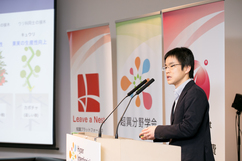
The Liverness Research Fund for young researchers under 40 years old. 2017 saw the establishment of research funded themes on regenerative medicine, three-dimensional culture, education , data science, entertainment, human behavior, and more. In this project, research presentations will be made mainly by the recipients of the 2017 call for themes, and the best of the year will be selected.
13:00-14:20
- 4th Floor Main Hall
symposium
Pumping new value out of uncharted waters
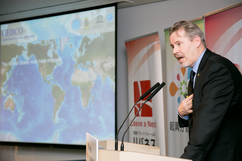

In 2017, the Nippon Foundation and RIVANES launched three ocean projects aimed at fostering the next generation, research and development, and the creation of new industries as joint projects. In this session, a university-launched venture that is taking on the challenge of creating new businesses from research results in the ocean, and a team that has formed an ultra-disciplinary R&D structure to develop innovative technology for seafloor topographic mapping will take the stage to discuss the future of the ocean.
14:40-16:00
- 4th Floor Main Hall
panel discussion
How to Reform Work Styles and Generate Innovation in the Knowledge Society
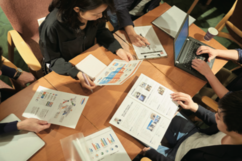
We are now entering a "knowledge society" in which knowledge has the greatest value. From now on, it will be important for "everyone," not just "someone in particular," to be able to properly evaluate the information that abounds in the world and create new knowledge. What should we do to develop such skills, habits, and attitudes? We will discuss methods for individuals to understand "what knowledge is" and to be able to generate knowledge, using the results of "knowledge science" research and practical examples from industry.
16:20-17:40
- 4th Floor Main Hall
panel discussion
Humanome research, beginning
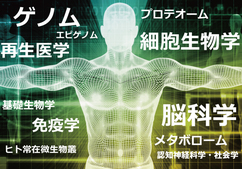
The "post-health era" is sure to arrive, when advances in medical technology and science and technology will lead to a shift from treatment to prevention, and people will begin to ask questions about their health and the state of society. In anticipation of that time, humanomics research pursues the question of "what is a person" and speculates on the nature of people, based on an understanding of all kinds of data related to people. In this session, we will discuss with researchers from various fields how human consciousness and society will change, and discuss a future that is not a fantasy, which can be found through super-fusion research.
10:00-11:20
- 4F Session Room 1
Imagining the future of creative human resource development from the front lines of education
The field of school education for nurturing the next generation is undergoing major changes with the reform of university entrance examinations in 2020 and the revision of the Courses of Study in 2022, which is said to be the most significant reform since the Meiji Restoration. Children's learning is becoming more "self-directed," with the introduction of "problem-based research," in which students set their own problems and think about how to solve them, and the introduction of learning methods such as active learning and project-based learning (PBL). What kind of skills will the next generation, who will become our future colleagues, have when they enter society? If we look at it as a place to nurture "creative human resources" who set their own issues and take on the challenge of solving them, there must be many hints in the field of education that we can apply to our own lives.
14:40-16:00
- 4F Session Room 1
-Plan for the Migration of One Million Humans to Mars- Presentation and Discussion of the Concept

Today, it is no longer a dream for humans to live on Mars. However, what would a realistic life on Mars be like? In the latter half of last year, 410 students participated in "Project Mars -Education League JP-," a project sponsored by HP Japan, Inc. with the cooperation of JAXA, and envisioned a plan to send 1 million people to Mars. In this session, we will invite the students who have passed the final selection of the first phase with their original and well-reasoned concept proposals, and they will give a presentation on their plans. After the presentation, we will have a discussion with the participants to explore life on Mars, transcending the boundaries between students, professionals, and educators.
16:20-17:40
- 4F Session Room 1
A society in which robots will become the norm - Where is the breaking point of dissemination and how will humans and society change?

What will be the future relationship between robots and people? This session will focus on what is required for robots to play an active role in our living environment. Robot developers from large corporations with experience in developing humanoid and field robots, engineers who are trying to link robot arms with CG software, robot designers, and alter egos to eliminate loneliness. Four panelists, including representatives of venture companies striving to research and develop robots, will be invited to participate in the discussion.
In addition, we will ask the panelists to present sketches of their own ideas about robots of the future, while considering a society in which robots and people coexist in harmony.
11:00-12:20 (Lunch session)
- 4F Session Room 2
Robotics Pioneering the Near Future of Japanese Agriculture
According to the Census of Agriculture and Forestry published by the Ministry of Agriculture, Forestry and Fisheries, Japan's agricultural working population in 2017 was 1,816,000, down about 800,000 from 2,606,000 in 2010, meaning that more than 30% of the labor force has been lost. The need for next-generation agricultural robots has long been recognized to enable a smaller production population to perform labor-intensive tasks, but now it has become an urgent issue. Researchers, agricultural machinery manufacturers, and venture companies in the field of agricultural robotics will gather to discuss the significance and results of their research in light of domestic and international development trends.
13:00-14:20 / 16:20-17:40
- 4F Session Room 2
Researcher Pitch
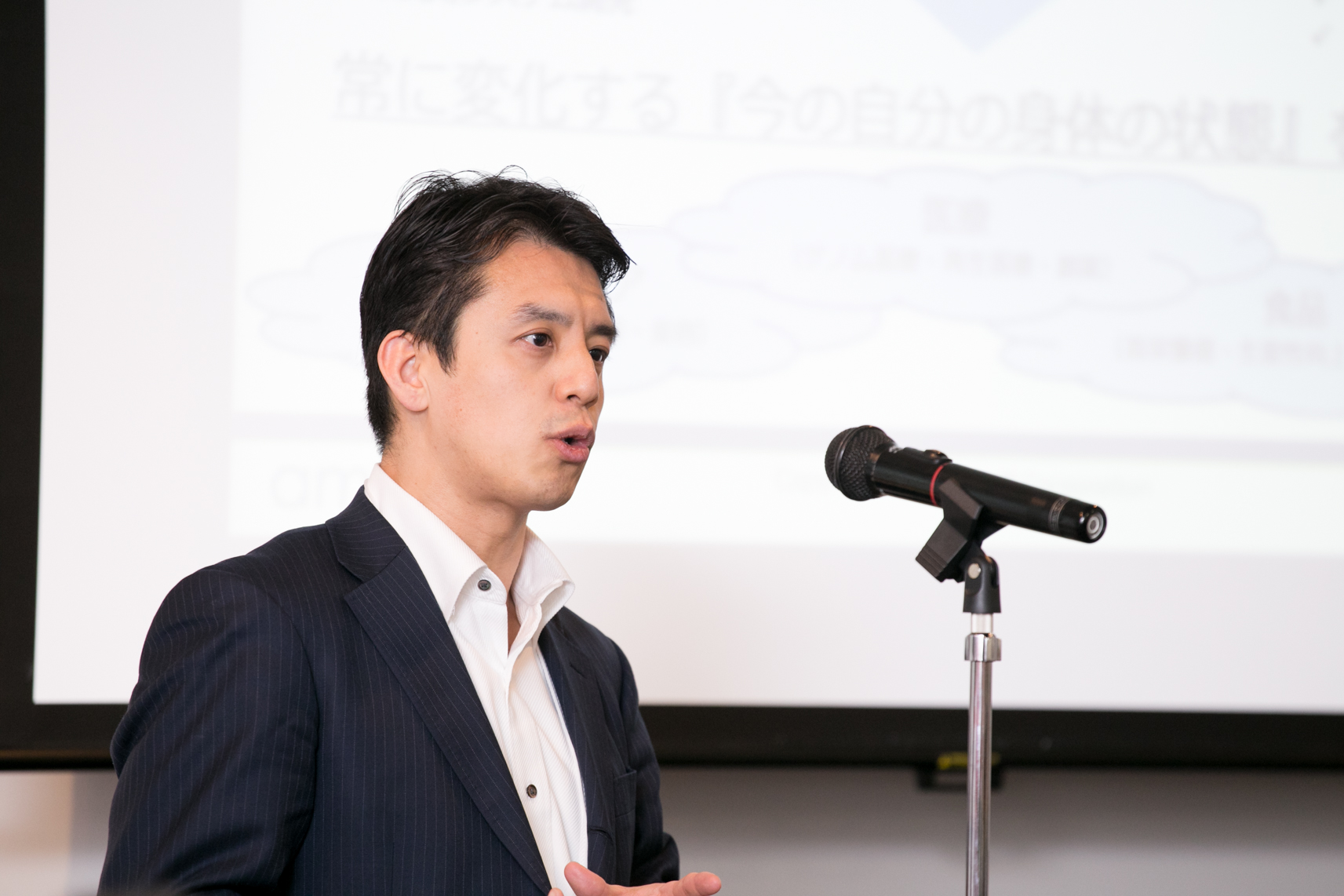
Up to 50 research topics, mainly poster presentations, will be presented by researchers. Presenters will have 3 minutes to present the appeal of their research to the audience. We hope that this event will serve as a starting point for interaction and discussion among the participants.
14:40-16:00
- 4F Session Room 2
Very Young Researchers Presentation
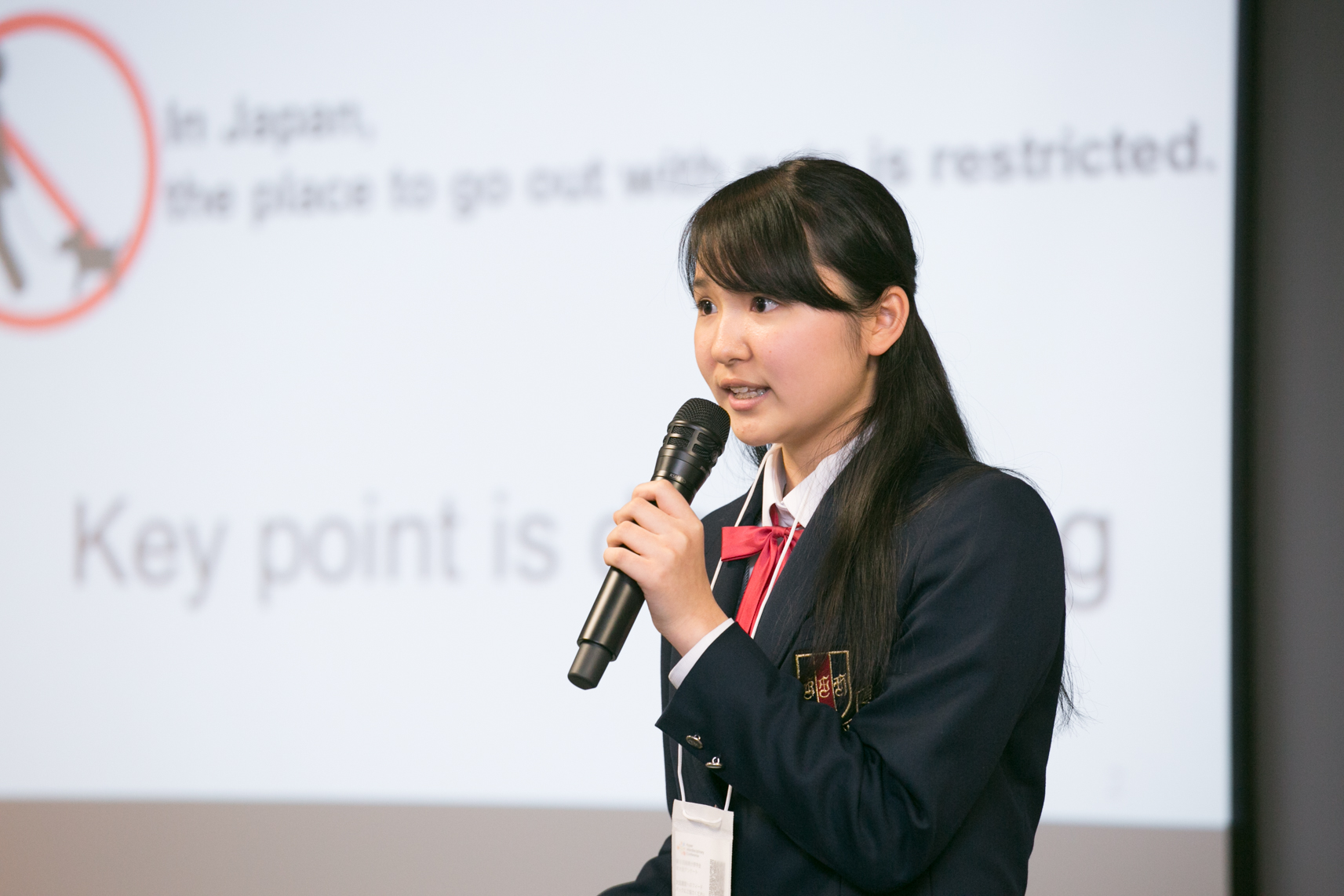
The next generation of junior high and high school student researchers will present their research in English. Science Castle, a conference for junior high and high school students (Conference HP→)https://s-castle.com/The presenters will be invited to present their research, which received the highest award at the
10:00-11:20
- 3rd Floor Session Room 3
What is a "sense of sustainability"?
Human resource development by industry, government, and academia for the realization of the SDGs
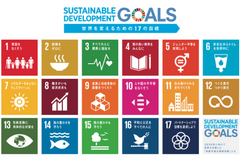
The Sustainable Development Goals (SDGs) are common global goals adopted at the UN Summit in September 2015. The business world has begun to move in response to these goals, and SDGs and corporate management and strategy are increasingly being discussed in overlapping terms. To achieve this, it is important to have human resources who can create a business vision that aims to solve a wide range of social issues.
How can we produce human resources who have a bird's eye view, who can connect the global and the local, and who can look far into the future? We will discuss how to nurture human resources with a "sense of sustainability" that can transcend diverse fields and organizations, including business, government, and academia.
13:00-14:20
- 3rd Floor Session Room 3
Mitsubishi Electric Idea Plus
The research laboratories of large corporations are a treasure trove of superior technologies. However, it is not easy to create businesses that take advantage of these technologies. What would happen if students, researchers, and engineers from local factories who are not affiliated with these companies came up with new applications for these technologies? We believe that this is where the seeds of innovation lie, and have launched a new human resource development initiative at RIVERNESS.
This time, with the cooperation of Mitsubishi Electric Corporation, we are making a new attempt to implement two of our own technologies in society through collaborative creation with people from outside the company with diverse backgrounds. The four teams that completed the three-month idea-thon will give their presentations.
10:00-18:20 (core time 14:40-16:00)
- 3F Poster and Booth Area
Researchers' posters, venture booths Postings and exhibits

This is a place for poster presentations that are not limited to a specific field, but rather, where a wide variety of presentations are made simultaneously to exchange passions among different fields and to create opportunities for innovation.
Click here for more information.













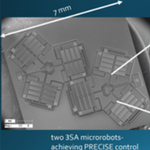 Mekonos Inc.
Mekonos Inc.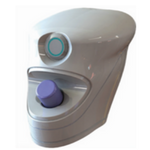 Droplette Inc.
Droplette Inc.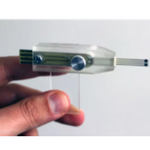 Guardion Inc.
Guardion Inc.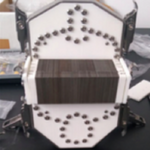 uFraction8 Ltd.
uFraction8 Ltd.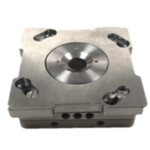 FlowVIEW tek
FlowVIEW tek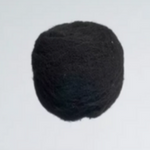 EcoWorth Tech Pte. Ltd.
EcoWorth Tech Pte. Ltd.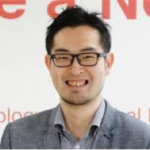 Ryuta Takeda
Ryuta Takeda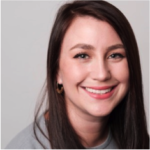 Ms. Molly Pyle
Ms. Molly Pyle Ms. Santa Astratova
Ms. Santa Astratova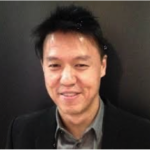 Mr. Kelvin Ong
Mr. Kelvin Ong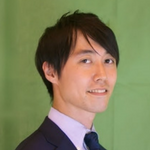 Mr. Ryusuke Komura
Mr. Ryusuke Komura Ms. Erin Kim
Ms. Erin Kim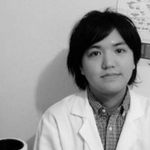 Mr. Kazuhiro Kawashima
Mr. Kazuhiro Kawashima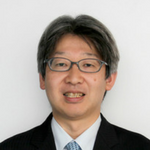 Mr. Tatsuya Shimizu
Mr. Tatsuya Shimizu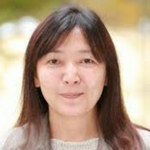 Mr. Yayoi Obata
Mr. Yayoi Obata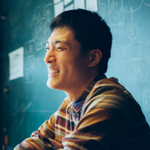 Mr. Yuki Hanyu
Mr. Yuki Hanyu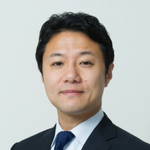 Mr. Shoei Iriyama
Mr. Shoei Iriyama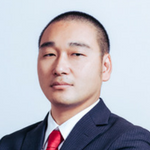 Shuichiro Takahashi
Shuichiro Takahashi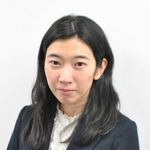 Mariko Kanno
Mariko Kanno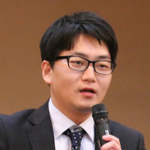 Mr. Tomohiro Nishio
Mr. Tomohiro Nishio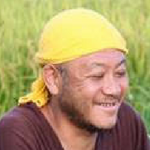 Mr. Kiichiro Katsumata
Mr. Kiichiro Katsumata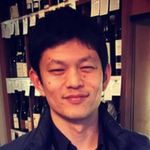 Mr. Kazuhiro Nishioka
Mr. Kazuhiro Nishioka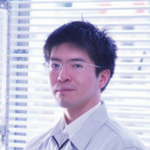 Yosuke Miyauchi
Yosuke Miyauchi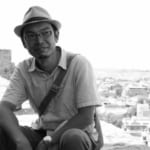 Kodai Konishi, Associate Professor, Multicultural Education Course, Tokyo Gakugei University
Kodai Konishi, Associate Professor, Multicultural Education Course, Tokyo Gakugei University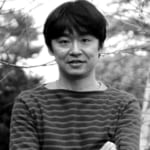 Kenichi Masaki, Associate Professor, Tokyo Gakugei University, Arts and Sports Sciences
Kenichi Masaki, Associate Professor, Tokyo Gakugei University, Arts and Sports Sciences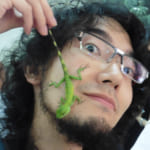 Michito Miyamoto, Ph.D. Graduate School of Science, The University of Tokyo
Michito Miyamoto, Ph.D. Graduate School of Science, The University of Tokyo Shogo Sato, Representative Director, QREATOR AGENT Co.
Shogo Sato, Representative Director, QREATOR AGENT Co.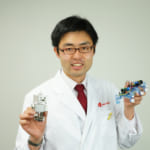 Daigo Fujita, LIVERNESS Co.
Daigo Fujita, LIVERNESS Co. Mr. Yoichi Suzuki
Mr. Yoichi Suzuki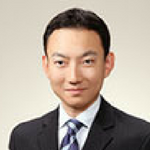 Mr. Koichi Sato
Mr. Koichi Sato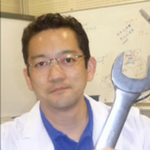 Mr. Yoshihiro Dooba
Mr. Yoshihiro Dooba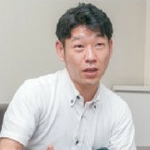 Mr. Hironori Takamitsu
Mr. Hironori Takamitsu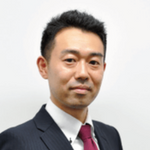 Kazuhiro Hasegawa
Kazuhiro Hasegawa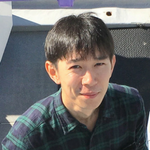 Mr. Shohei Ito
Mr. Shohei Ito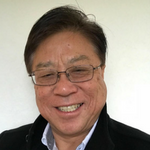 Mr. Toyoki Sasakura
Mr. Toyoki Sasakura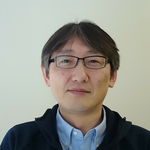 Mr. Michihiro Shonai
Mr. Michihiro Shonai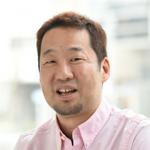 Hideki Hashimoto
Hideki Hashimoto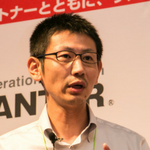 Mr. Hiroki Yamanaka
Mr. Hiroki Yamanaka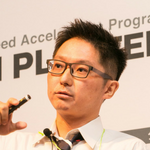 Mr. Jun Ogura
Mr. Jun Ogura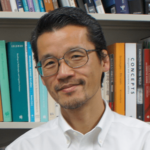 Atsushi Shimojima, Professor, Faculty of Culture and Information Studies, Doshisha University
Atsushi Shimojima, Professor, Faculty of Culture and Information Studies, Doshisha University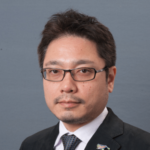 Takashi Hashimoto, Professor, School of Knowledge Science, Japan Advanced Institute of Science and Technology
Takashi Hashimoto, Professor, School of Knowledge Science, Japan Advanced Institute of Science and Technology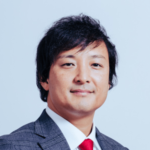 Yukihiro Maru, CEO and Representative Director, Liverness, Inc.
Yukihiro Maru, CEO and Representative Director, Liverness, Inc.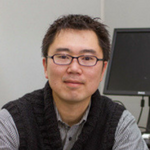
 Mr. Ryu Nakaki
Mr. Ryu Nakaki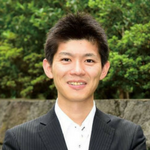 Mr. Takanori Kobayashi
Mr. Takanori Kobayashi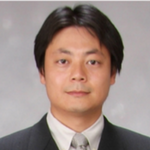 Mr. Masahiro Shinohara
Mr. Masahiro Shinohara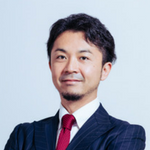 Joe Inoue
Joe Inoue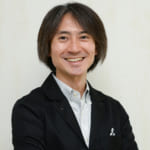 Mr. Naotsugu Taniguchi
Mr. Naotsugu Taniguchi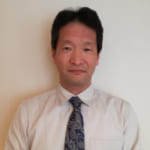 Mr. Hisashi Sugiura
Mr. Hisashi Sugiura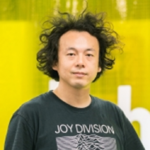 Mr. Hiroyuki Hoshino
Mr. Hiroyuki Hoshino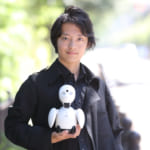 Mr. Kentaro Yoshifuji
Mr. Kentaro Yoshifuji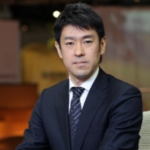 Shinya Kirihara
Shinya Kirihara